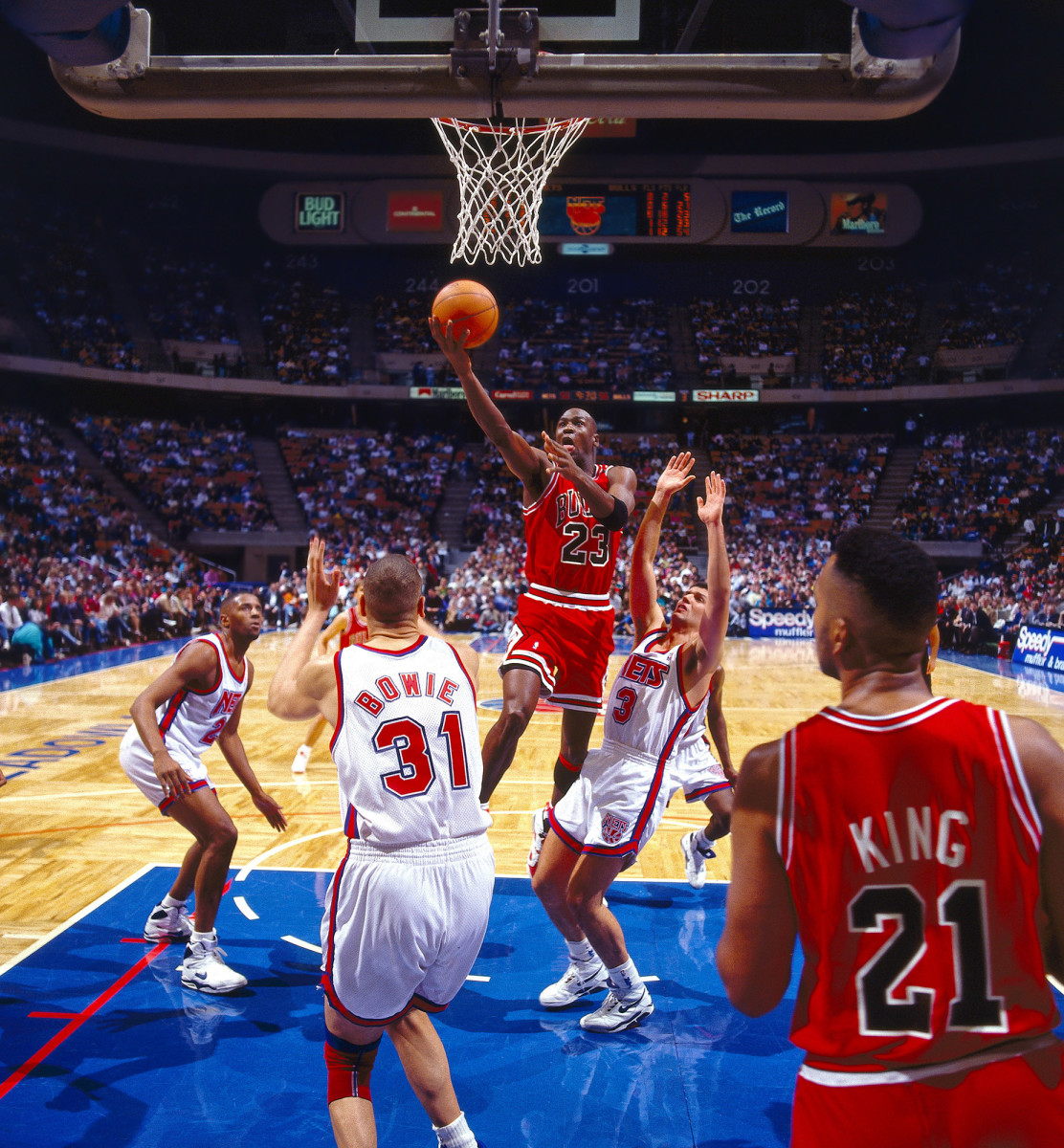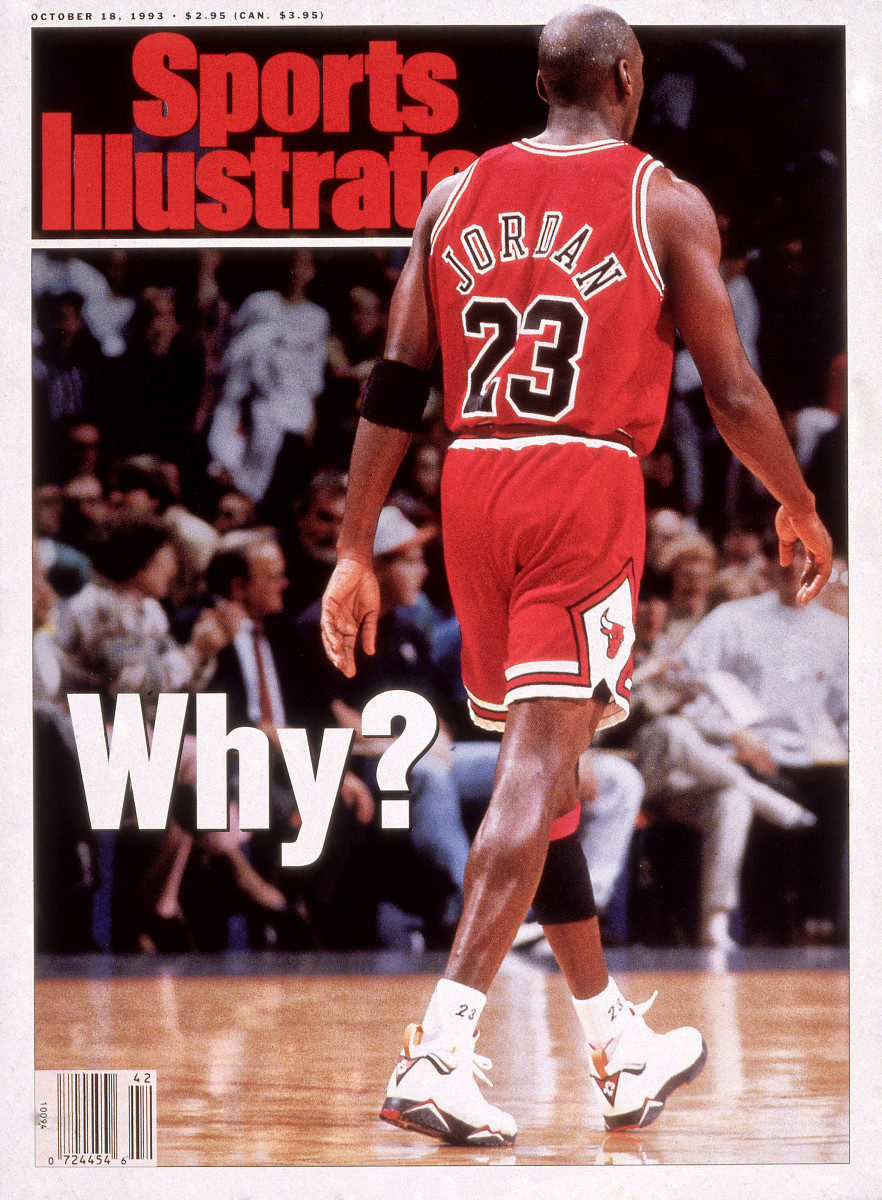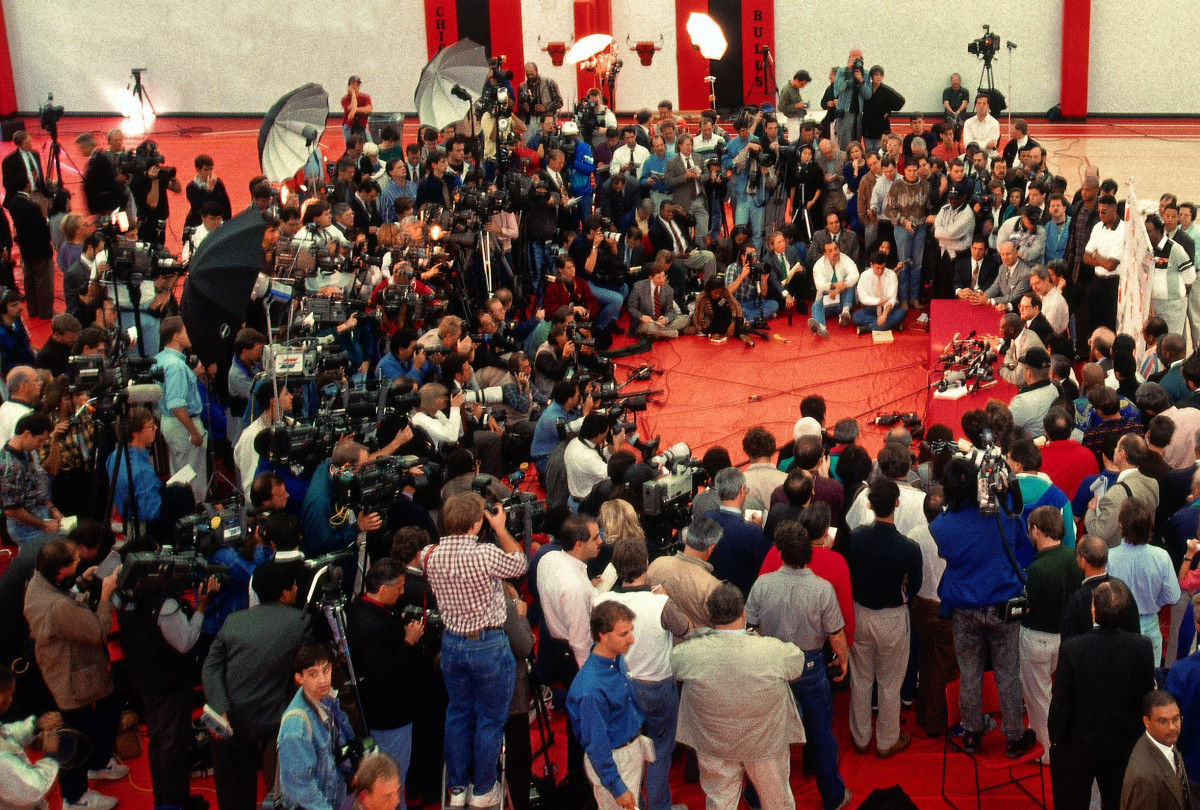Behind the Scenes of Michael Jordan's First Retirement
In 1993, Michael Jordan shocked the sports world when he announced that he was done with the NBA at just 30 years old. Sports Illustrated is opening up the SI Vault and examining its most consequential work about moments like this one that defined the most legendary athletes in sports through its new podcast, The Record.
In the first episode, host Jon Wertheim and correspondent Jessica Smetana revisit that fateful day and the peculiar circumstances surrounding Jordan's decision, and dive into the October 18, 1993 article about his abrupt retirement from basketball, written by longtime SI writer Jack McCallum and titled, The Desire Isn't There. McCallum reveals details about Jordan's resentment towards the media and how it could have played a role in his decision, as well as his personal relationship with Jordan at the time of his announcement.
Listen—or subscribe—to SI's The Record:
The following transcript has been lightly edited for clarity and length.
Jessica Smetana: In the story that you wrote for Sports Illustrated called The Desire Isn't There, you talked about how Michael Jordan had started to have a little bit of a feeling of resentment towards the media. Where did that start? And do you think that played a role in his retirement?
Jack McCallum: Back in 1991, when I had done this story for Sportsman of the Year. It was the first time I heard him talk about the resentment. And what he said was I didn't know everybody would resent [me]. I thought I was supposed to project a positive image. I thought that's what you were supposed to be. I didn't really realize that everyone now would start to grow tired of Michael Jordan as the positive, relentless person.
Very soon after that, the gambling debts and the gambling stories and the book written by Richard Esquinas, that he apparently owed a million dollars in golf bets, too, came out. And all of a sudden that perception changed. There was also a great book written about Michael by Sam Smith from the Chicago Tribune called The Jordan Rules, which was about how Michael wasn't the guy we thought he was. Well, to those who were covering him, Sam's book was great, but none of us went, Oh my God, I don't believe that. We all believed he would smack somebody around at practice. None of us believed the choir boy type of image.
So, Michael thought that the media kind of did this complete 180 on him, that one day I’m the cherubic kid and another day, I'm the worst person in the world who loses money gambling on a golf course and associates with bad people. So was some of that true? I guess. But Michael, like everyone in that position, has to go back and realize what he contributed to it, how much he needed that media attention, how much that he fed on it. And if I go back and read what I wrote about Jordan, I would say that I never built him up too much to be a god off the court. And I never really tore him down too much when it became apparent that he's a human being with many frailties. I thought I stayed in the range. And I'm sure a lot of other people did.
But in this age that we start to get into, the other thing that that factored in there was that it was the beginning of the tabloid age. There weren't cell phones when we started covering Michael. By the time we were done, it was getting a little bit into that more of a tabloid age and the talk radio age. And so Michael began his career with this great innocence. And now he was ending it, as many athletes do, an entirely different media time. And like many people, he resented that.

JS: What was your relationship with Michael Jordan like at the time of his retirement?
JM: There was a time, when he was going after his first title in ‘91—and this was really unusual for Sports Illustrated—we put him on the covers three straight times during the playoffs. That was really unusual. I'm not going to say never, but it's not a credit to the story when something goes on the cover. When I had a cover story, yeah, it was nice. But they usually didn't put someone on the cover because the story was great. They put some on the cover because they want to put them on the cover that week. There's a timely reason to do it. It's going to spark some controversy. Whatever the reason is—once in a while, it's a great photo. And once in a while, it's a story that may lift that over another story. Maybe. But they just wanted to put Michael on the cover because that what was selling and that's what America was paying attention to.
And the third of those stories, the third week was after the finals. I had to write the wrap-up of it. And I met Michael in this breakfast place on Saturday morning. And he looked at me and he said, Man, I'm really sick of you. And I said to him, I am really sick of you too. [Laughs.]

BUY CLASSIC CHICAGO BULLS COVERS
Even though the stories weren't the reason they were going on the cover, you have to put something new into them. So there was this feeling of fatigue when I saw Michael. And then I went to see him a few months later, he was hosting Saturday Night Live. And I went backstage at Saturday Night Live to do a little story about it and I think it ended up as a little Scorecard story. And 93 was sort of the same way we were covering: Can he repeat? Because nobody had that three-peated in forever, since the Celtic dynasties. And so I was always around then. So I'm sure he was sick of me. He was a little bit sick of Sports Illustrated. He'd like me, we had a good relationship, he was always very professional. I had made him mad a couple of times with something I wrote, but we were always good.
JS: What did you what did you make him mad about?
JM: Well, back actually before I can't remember the year, ’89 or ’90, I had gone to his house to do a story. He was messing around with his guys and he wasn't married yet. And during the course of the afternoon, his girlfriend at the time—Juanita, who later became his wife—brought a baby downstairs. You do all this research back then, there wasn't Google or anything, but I certainly read clips before I'm going out to talk to Michael. And I hadn't read that Michael had a baby. I was astounded. I'm holding the baby and I'm talking about my kids. I mean, they were older by then, but I got two sons. And Michael said, well, I want to have two sons. And I was just kind of amazed by it that I didn't know. I didn't care that he had a baby out of wedlock. It just didn't matter to me. It's not something I concern myself with.

And that night at the game, his public relations person told me, Michael expects that you won't write that he had a child. I go, well, I was holding the child. It's a person. We could spend a long time talking about this, but I just felt that Michael was really asking too much of me to not mention that he had a child and we talked about it. And I ended up putting it in the story. And he had said a couple other people knew about it and they didn't put it in the story. And I said, well, there's certain things that I don't put in stories that I see with my eyes but it's just my own kind of judgment on it. And the editors left it up to me. But I just felt this was something—you know, you can't hide a human being in the closet. So I felt that I had to do it and I did it. And, you know, he was mad, but it was a different time back then, even though the main guys didn't shut you off for one thing.
